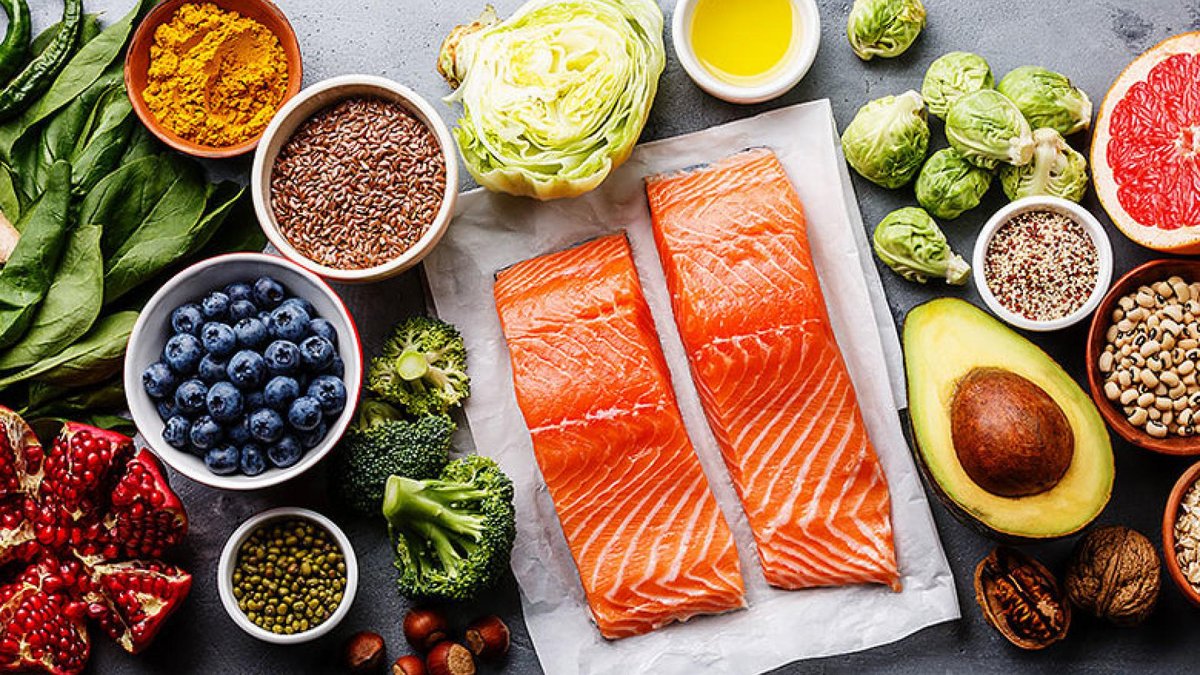
Learn helpful information on the role of diet and brain health, based on the latest research.
Food serves many important purposes in our lives. Food-related activities bring us together with the people who are important in our lives. Food gives us pleasure, stimulation, and comfort. Behavioral disorders related to food create or sustain terrible distress. Food deficiency or deprivation is a source of great suffering. In so many ways, food can make life better or worse. It can also make health better or worse.
Much research has been directed at understanding how dietary patterns affect the risk for Alzheimer’s disease and other dementias, and here, too, food can play a positive, health-improving role…or a destructive and disease-promoting role. The World Health Organization recently concluded that many cases of cognitive decline could be delayed or prevented by adopting a healthier lifestyle. Physical activity, diet, smoking cessation, and attention to chronic medical diseases are all important contributors to healthier cognitive aging. So, what do we know about food and Alzheimer’s disease?
Foods that May Increase the Risk of Alzheimer’s
First, we know that an unhealthy diet can promote cognitive decline along with other health problems. Scientists have looked at what they call the “Western diet,” a pattern rich in convenient, processed foods and rich in animal products. The typical western diet is high in total fat, saturated fat, cholesterol, sodium, and processed grains, large amounts of added sugar. This eating pattern has been linked to obesity, diabetes, and heart disease. A high intake of saturated and trans fats increases the body’s levels of oxidative stress and inflammatory response, harmful processes that contribute to the development of dementia. The takeaway message? Cut down on total caloric intake, saturated and trans fats, and sugar.
Foods that May Decrease the Risk of Alzheimer’s
Next, we know that a healthier diet can protect cognitive functioning while also improving other aspects of health. Most of the research on diet and Alzheimer’s has focused on the Mediterranean diet (MD), an eating pattern that emphasizes healthy fats such as olive oil, fresh fruits and vegetables, legumes, nuts, and less dairy food, red meat, butter or margarine, sweetened beverages, and pastries. Moderate wine consumption is included in some, but not all, European and Middle Eastern populations who have adopted the MD.
The DASH Diet
In the United States, concern about lifestyle and rampant high blood pressure led our National Heart, Lung, and Blood Institute to propose a set of dietary recommendations known as the Dietary Approaches to Stop Hypertension (DASH) Diet. The DASH Diet emphasizes many MD components as well as a reduction in overall consumption of carbohydrates and sodium. It has been shown to reduce blood pressure.
The MIND Diet
More recently, the Mediterranean-DASH Intervention for Neurodegenerative Delay Diet, known popularly as the MIND Diet, has been shown to slow down cognitive decline. The MIND Diet takes elements of MD and DASH and recommends dietary focus on the “good” foods such as whole grains, green leafy and other vegetables, berries, fish, poultry, beans, nuts, and olive oil while minimizing intake of “bad” foods such as red meats, butter, margarine, cheese, fast foods, and sweets. One study found that adherents to the MIND Diet demonstrated more successful cognitive aging, and the MIND Diet provided even better protection against Alzheimer’s disease in this study than the DASH or MD diets.
Can Vitamins and Supplements Decrease the Risk of Alzheimer’s?
Not all that we eat falls into the category of food, and many vitamins or supplements have also been studied in relation to Alzheimer’s disease risk. We certainly need enough of the essential vitamins such as folic acid, B12, E, and D. Excessive E or D, however, accumulate in our fat tissues and are not beneficial. Curcumin, omega-3 fatty acids, and cocoa are among the dietary additives still being researched for a deeper understanding of their risks and benefits. A study recently published in the Journal of the American Medical Association cautioned us that many dietary supplements marketed for the prevention or treatment of cognitive decline are not well supported by credible evidence.
Summary
Our growing appreciation of the relationship between diet and brain health and the behaviors we choose to change or continue will shape the health of our aging population. Along with other lifestyle choices, our food consumption habits can have constructive or destructive effects on brain health. We are armed with the knowledge that can benefit society and delay or prevent many cases of cognitive decline.
Food and Brain Health
| HEALTHY FOODS | FOODS TO AVOID |
|---|---|
| Whole grains | Red meats |
| Fresh fruits | Butter |
| Vegetables | Margarine |
| Fish | Cheese |
| Beans | Fast foods |
| Nuts | Sweets |
| Olive oil | High-sodium foods |
About BrightFocus Foundation
BrightFocus Foundation is a premier global nonprofit funder of research to defeat Alzheimer’s, macular degeneration, and glaucoma. Since its inception more than 50 years ago, BrightFocus and its flagship research programs—Alzheimer’s Disease Research, Macular Degeneration Research, and National Glaucoma Research—has awarded more than $300 million in research grants to scientists around the world, catalyzing thousands of scientific breakthroughs, life-enhancing treatments, and diagnostic tools. We also share the latest research findings, expert information, and resources to empower the millions impacted by these devastating diseases. Learn more at brightfocus.org.
Disclaimer: The information provided here is a public service of BrightFocus Foundation and is not intended to constitute medical advice. Please consult your physician for personalized medical, dietary, and/or exercise advice. Any medications or supplements should only be taken under medical supervision. BrightFocus Foundation does not endorse any medical products or therapies.
- Lifestyle
- Nutrition








